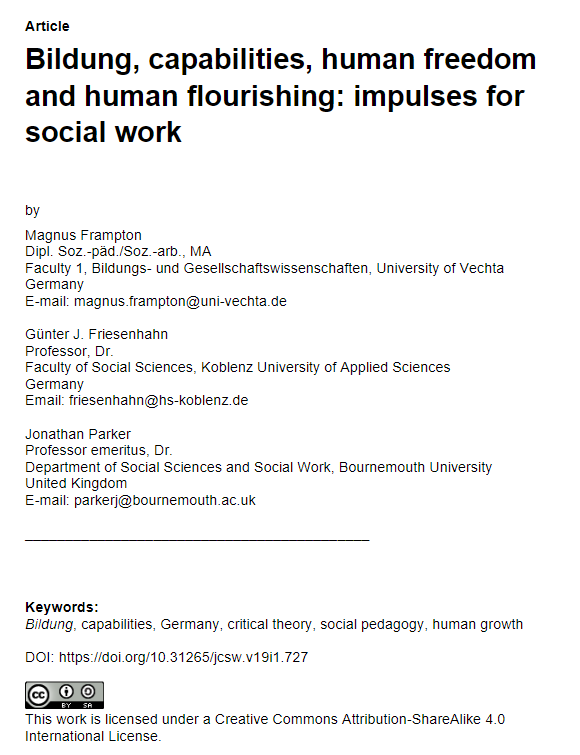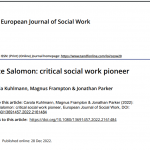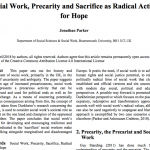Growing international interest in approaches to social work focussing on human growth and development and including each social actor’s real freedoms to act, such as the capabilities approach, has fascinated BU Professor Emeritus, Jonathan Parker. In this new paper Parker and his German colleagues introduce a related, but internationally less well-known concept from German-language philosophy of education discourses, Bildung, arguing that Bildung represents a valuable additional framework that emphasises human growth and human flourishing. 

The concept of Bildung has changed over time, with this paper charting development from its late enlightenment-period origins. Two particular variants are highlighted: the original 18th-century Bildung, which focussed on helping the individual reach a state of agency, and Mündigkeit (maturity), a late 20th-century critical theory-influenced Bildung, which focussed on the relationship between the growth of the individual and the society of which they are part. It is suggested that due to their shared tenets, both variants of Bildung can be seen a single concept, one with a strong conceptual closeness to the capabilities approach.
When applied to social work, Bildung suggests a shift away from thinking about the person in terms of utilities and outcomes, towards instead an understanding of a person’s humanness in their freedom to choose their own path and become the author of their own life. Parker and colleagues highlight four key elements of Bildung-informed social work: (1) the role of the social worker stimulating the service user’s dispositions in the context of their social environment; (2) shifting to a relationship-oriented practice, centring on direct work; (3) utilizing community settings in practice, and (4) the importance of refraining from using guidance, persuasion and coercion.
Congratulations!
Prof. Edwin van Teijlingen
Reference:
- Frampton, M., Friesenhahn, G. J., & Parker, J. (2024). Bildung, capabilities, human freedom and human flourishing: impulses for social work. Journal of Comparative Social Work, 19(1), 129–156. https://doi.org/10.31265/jcsw.v19i1.727
 New BU Social Work publication
New BU Social Work publication Social Work, Precarity & Sacrifice as Radical Action for Hope
Social Work, Precarity & Sacrifice as Radical Action for Hope New BU social sciences and social work publication
New BU social sciences and social work publication










 Fourth INRC Symposium: From Clinical Applications to Neuro-Inspired Computation
Fourth INRC Symposium: From Clinical Applications to Neuro-Inspired Computation ESRC Festival of Social Science 2025 – Reflecting back and looking ahead to 2026
ESRC Festival of Social Science 2025 – Reflecting back and looking ahead to 2026 3C Event: Research Culture, Community & Cookies – Tuesday 13 January 10-11am
3C Event: Research Culture, Community & Cookies – Tuesday 13 January 10-11am Dr. Chloe Casey on Sky News
Dr. Chloe Casey on Sky News Final Bournemouth University publication of 2025
Final Bournemouth University publication of 2025 ECR Funding Open Call: Research Culture & Community Grant – Application Deadline Friday 12 December
ECR Funding Open Call: Research Culture & Community Grant – Application Deadline Friday 12 December MSCA Postdoctoral Fellowships 2025 Call
MSCA Postdoctoral Fellowships 2025 Call ERC Advanced Grant 2025 Webinar
ERC Advanced Grant 2025 Webinar Horizon Europe Work Programme 2025 Published
Horizon Europe Work Programme 2025 Published Update on UKRO services
Update on UKRO services European research project exploring use of ‘virtual twins’ to better manage metabolic associated fatty liver disease
European research project exploring use of ‘virtual twins’ to better manage metabolic associated fatty liver disease
This is fascinating, thank you for sharing! Food for thought… how could we apply Bildung to inclusive mentoring of early career researchers in academia… especially when it comes to refraining from using “guidance”?